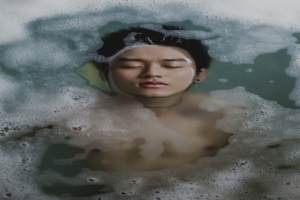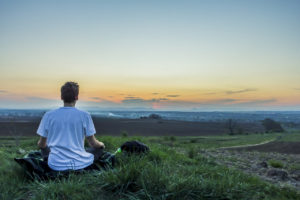What drug was originally discovered by an Ethopian goat herder in the 1500’s, was banned in Mecca in 1511, is most expensive in Indonesia, and more than 80% of Americans use it?

The Inspired Work of
Passionate about accessible education and evidence-based wellness, Laura founded The MAPS Institute, an educational wellness editorial and platform. Aside from her passion for research and educating, Laura is a classically trained vocalist, sound therapist, and a practitioner and teacher of Ashtanga and Restorative Yoga. She is the creator of the MAPS (Mindfulness, Activation, Purpose, and Surrender) philosophy and is in continual pursuit of helping her students and herself find balance amid the chaos around and within them. When not sifting through Nature Magazine, complaining about their paywalls, she enjoys trying new wine varietals, experimenting in the kitchen, riding her bicycle (sometimes cross-country), and spending time with her husband Charlie, cockapoo Miles, and expected baby girl, Ella. Click here to follow the MAPS Institute on social media.

What drug was originally discovered by an Ethopian goat herder in the 1500’s, was banned in Mecca in 1511, is most expensive in Indonesia, and more than 80% of Americans use it?

What is the most perfect thing in your life? But is it perfect?
As you think about your most perfect thing, you may begin to recognize that it’s full of flaws, imperfections, chips, and faults. That it’s anything but perfect — at least by that definition. And as you think about those “imperfections,” you may find a smile crawl across your face.

Research has found that balneotherapy treatments of 38-42 degrees Celsius decrease our C-Reactive protein (CRP levels) — which are inclined to increase in due to inflammation. This allows for a soothing our hypothalamic-pituitary-adrenal (HPA) axis (that triggers our fight-freeze or flight state).

While you may have tried some form of meditation in the past, because of these challenges, you may have had trouble forming a sustainable practice.
This may be because you haven’t found the appropriate meditation technique for you, but for many, it’s because they have uncertainty about the HOW of meditation. How does this thing actually work?

When your brain isn’t focused on a task, it switches into autopilot mode whenever it can. This switch to automatic processing allows your brain to rest its prefrontal cortex.
Autopilot can be incredibly helpful, especially when we are talking about brushing our teeth, flossing, dressing ourselves, checking the mail, cleaning the kitchen, it saves us unnecessary decision-making.
The danger is when we don’t notice that we’ve slipped into this mode.

Not only does constantly striving to achieve things potentially up our cortisol levels and mess up our microbiome, it creates neuropathways that are not conducive to a mindful existence. In other words, the more we focus on doing things, the more our mind rewires around that, which makes us harder to be mindful — which, in case you’ve not been following along, ain’t so great.
So how do we mindfully go the other direction? By getting more rest.
Page [tcb_pagination_current_page] of [tcb_pagination_total_pages]
Join us to get our weekly newsletter, The Practice, for FREE and access to all of our articles, downloadable resources and online programs so you can start building your personal practice of Mindfulness, Activation, Purpose and Surrender and live the authentic, bold, and dynamic life you've always wanted.